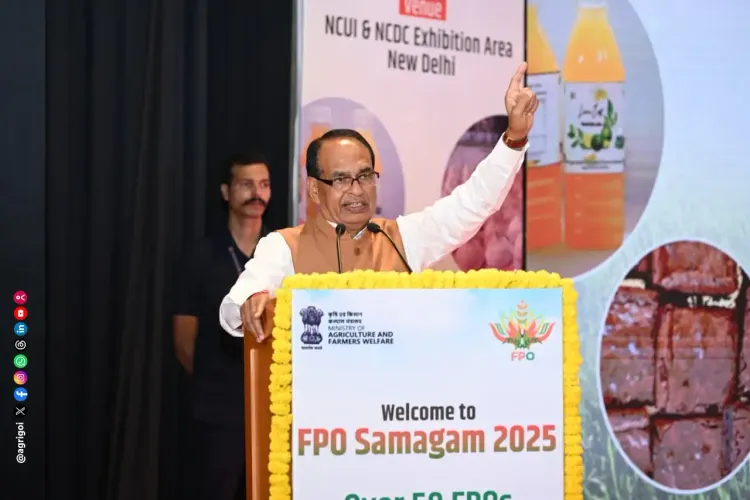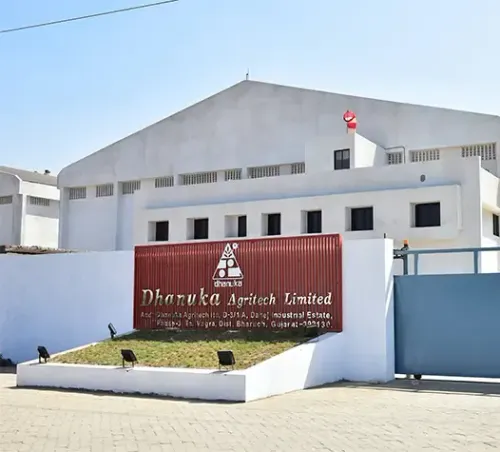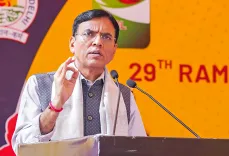What Actions is the Government Taking Against Counterfeit Seeds and Pesticides?

Synopsis
Key Takeaways
- Government's commitment to combat counterfeit seeds.
- Introduction of a Seed Act to ensure quality for farmers.
- Encouragement for farmers to become entrepreneurs.
- Focus on integrated farming and allied activities.
- Opportunities for new market interactions created.
New Delhi, Oct 30 (NationPress) Union Agriculture Minister Shivraj Singh Chouhan on Thursday launched the 'National Farmer Producer Organisations' (FPO) Conclave 2025 in the capital, revealing that the government plans to enact a new Seed Act to guarantee that farmers obtain top-quality seeds.
Chouhan stated that rigorous measures are being implemented against counterfeit seeds and pesticides. He encouraged FPOs and participating organizations to transform farmers into entrepreneurs and traders, ensuring that benefits reach the growers directly, eliminating middlemen.
Highlighting the issues of price disparity, Chouhan noted that farmers frequently do not receive fair compensation for their produce, while consumers face higher prices. He asserted, “This gap must be narrowed,” urging farmers to focus on value addition.
“Farmers should evolve from being mere producers to becoming entrepreneurs in agriculture. Enhancing processing and value addition will boost their income,” the Union Minister remarked.
He stressed the importance of promoting integrated farming and associated activities to elevate farmer incomes.
Chouhan called on FPOs to increase their turnover within a year, broaden their membership, and improve credibility and quality to ensure maximum benefits for member farmers.
At the exhibition held at the NCDC premises, a total of 267 FPOs presented cereals, pulses, oilseeds, fruits, vegetables, organic, processed, and traditional products.
More than 500 progressive farmers, FPOs, implementing agencies, and cluster-based business organizations from 24 states and 140 districts participated in the conclave.
The event included various technical sessions and panel discussions on subjects such as oilseed production, water use efficiency, natural farming, Agricultural Infrastructure Fund, honey production, digital marketing, AGMARK certification, and seed production.
A dedicated platform was established for interaction among FPOs, farmers, buyers, and sellers, paving the way for new market opportunities for rural entrepreneurs.









